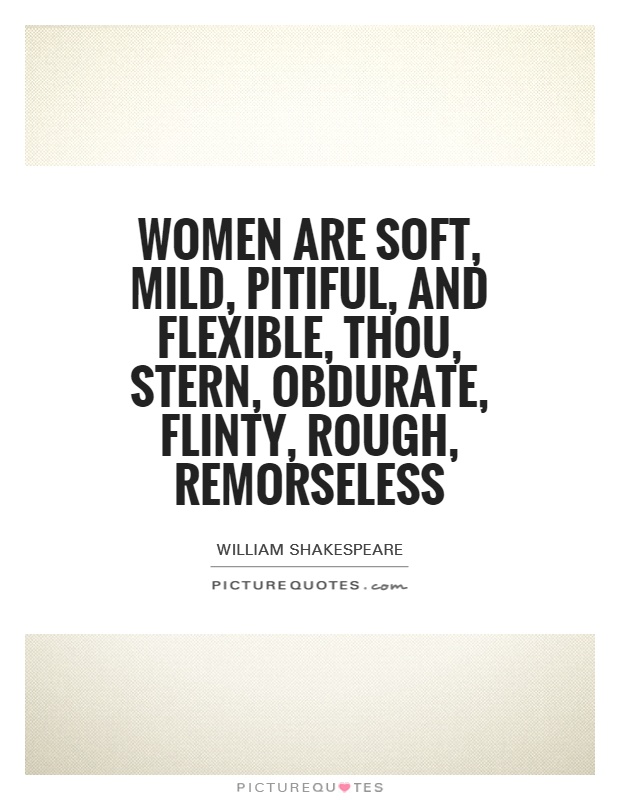Women are soft, mild, pitiful, and flexible, thou, stern, obdurate, flinty, rough, remorseless

Women are soft, mild, pitiful, and flexible, thou, stern, obdurate, flinty, rough, remorseless
In the works of William Shakespeare, the stark contrast between the characteristics of women and men is a recurring theme that is often explored in depth. The quote “Women are soft, mild, pitiful, and flexible, thou, stern, obdurate, flinty, rough, remorseless” perfectly encapsulates this dichotomy and serves as a reflection of the societal norms and expectations of the time.Throughout Shakespeare’s plays, women are often portrayed as gentle, nurturing, and compassionate beings. They are seen as the epitome of femininity, embodying qualities such as softness, mildness, and flexibility. Characters like Juliet in “Romeo and Juliet” and Desdemona in “Othello” exemplify these traits, as they are portrayed as loving and caring individuals who are willing to sacrifice everything for the ones they love.
On the other hand, men in Shakespeare’s works are often depicted as stern, unyielding, and ruthless. They are seen as the embodiment of masculinity, possessing qualities such as obstinacy, flintiness, and roughness. Characters like Macbeth in “Macbeth” and Iago in “Othello” exemplify these traits, as they are portrayed as ambitious and manipulative individuals who will stop at nothing to achieve their goals.
The contrast between the characteristics of women and men in Shakespeare’s works serves to highlight the gender roles and expectations of the time. Women were expected to be submissive and obedient, while men were expected to be dominant and assertive. This quote reflects the societal norms and beliefs of the Elizabethan era, where women were seen as inferior to men and were expected to conform to traditional gender roles.
However, Shakespeare also challenges these stereotypes and subverts gender expectations in his plays. Characters like Lady Macbeth in “Macbeth” and Beatrice in “Much Ado About Nothing” defy traditional gender roles and exhibit qualities that are typically associated with men. These characters are strong, independent, and assertive, challenging the notion that women are inherently soft and pitiful.












 Friendship Quotes
Friendship Quotes Love Quotes
Love Quotes Life Quotes
Life Quotes Funny Quotes
Funny Quotes Motivational Quotes
Motivational Quotes Inspirational Quotes
Inspirational Quotes